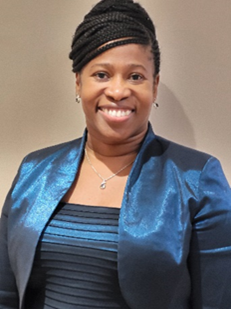Unlocking potential: Scholarship reveals student success strategies

Introduction
Today, we are diving into a crucial topic that affects far too many students in higher education: the awarding gap. This issue results in students from minoritised ethnicities, those with disabilities or mental health conditions, and those from more deprived areas not reaching their full academic potential.
The literature recognises that awarding gaps are complex and systemic, with social norms impacting the learning environment, student experience and assessment strategies (Fyfe et al, 2002, Richardson, 2018). Despite considerable literature about inequity in educational outcomes, relatively little focuses on higher education. There is limited research into interventions to support reduction of awarding gaps, particularly for online environments (Calo et al. 2024). This blog outlines the findings from a comprehensive review of Open University (OU) scholarship projects, revealing key themes and practical interventions to promote inclusivity, enhance the student experience and reduce awarding gaps.
Access Participation and Success
Access and participation plans set out how higher education providers will improve equality of opportunity for students from disadvantaged backgrounds to access, succeed in, and progress from higher education.
(Office for Students, 2024)
Our approach
At The Open University's Faculty of Business and Law, our team of five academics, Dr. Catherine Comfort, Suz Corcoran, Nadine Ellis, Sanjay Gandhi, and Kevin Graham decided to tackle this issue head-on. We conducted a systematic review of OU scholarship across its all four faculties that related to Access, Participation, and Success from 2019 to 2023, focusing on 59 reports that identified interventions for reducing awarding gaps in an online environment.
Observations
So, what did we find? This review identified barriers and enablers and the practical measures taken to improve access to, participation in, and success with on-line study. Our review revealed interventions that aligned with eight key themes including student engagement, the student-tutor relationship and technology.
Key insights
- Students from underrepresented groups may rely more on personal determination than asking for help.
- Proactive tutor contact and support is crucial as is modelling successful student behaviours, and providing mentoring and academic skills support are also effective.
- Targeted support is needed particularly at Level 1 as the likelihood of withdrawal is higher for disadvantaged and ethnic minority students on flexible study intensity.
- Students, particularly those with additional learning needs, can really benefit from having access to technology tools, and being able to have module materials provided in different formats and platforms.
- Videos, interactive diagrams, self-assessment questions and virtual visits may increase engagement.
- Digital accessibility needs therefore to be consistently considered throughout module creation and delivery.
Actions
So, having identified these findings, what did we do next? In order to share the practical implications of our scholarship, we distilled our findings into checklist prompts for module teams. The purpose of doing this was to be able to share these recognised interventions in an accessible way to the widest possible audience. This ensures focus on what has already been tried and tested in an on-line environment rather than starting from scratch.
The checklist prompts are succinct and set out in accordance with the eight key themes we discovered. They cover topics such as focusing on individuality of students, recognising the differentiated experiences of underrepresented groups, and the importance of designing inclusive curriculum. Our scholarship report and checklists have already been shared with, and used by, senior management teams. We will also disseminate them through the OU’s university wide Scholarship seminars, and directly to module teams, to assist with implementation and provide a forum for questions and further discussion.
Takeaways
The key takeaway? Addressing awarding gaps requires the participation of all staff involved in teaching, learning, assessment, and the student experience. Our scholarship review provides practical suggestions for every group of staff that is involved in delivering student success, and particularly for those students who fall within the remit of Access, Participation and Success. Going forward, we intend to evaluate the impact of adopting these recommendations in tackling awarding gaps.
So, keep an eye out for our next blog post, where we'll share our findings on how these interventions are making a difference in the lives of students.
If you would like to learn more about our scholarship, including reading our full report, please contact:
Together, we can work towards a more equitable and inclusive higher education landscape for all.
References
Calo, F., Kourti, I., Wahga, A., Scognamiglio, F., and Kutlu, G. (2024 in press). Navigating the award gap of ethnic minority students In J. Baxter, H. Selby-Fell, & A. Gilbert (Eds.), Creativity and critique in digital learning and teaching: Insights for learning design in business and law London Palgrave.
Fyfe, M., Horsburgh, J., Blitz, J., Chiavaroli, N., Kumar, S., and Cleland, J. (2022). The do’s, don’ts and don’t know of redressing differential attainment related to race/ethnicity in medical schools. Perspectives on Medical Education, 11(1), 1–14. https://doi.org/10.1007/s40037-021-00696-3
Office for Students Access and Participation Plans (2024) Office for Students available at Access and participation plans - Office for Students (accessed 24 May 2024)
Richardson, J. T. E., Mittelmeier, J., and Rienties, B. (2020). The role of gender, social class and ethnicity in participation and academic attainment in UK higher education: An update. Oxford Review of Education, 46(3), 346–362.
About the blog authors

Dr. Catherine Comfort is a Senior Lecturer, Fellow of the HEA and the Academic Lead for Access, Participation and Success within the Faculty of Business and Law at The Open University. She was awarded her doctorate of Education with the OU in 2023. Her research interests are around the benefits of mentoring for young people and students. Prior to joining the OU in 2014, Catherine worked in business consultancy, research, central and local government. She is a volunteer mentor with a local authority mentoring scheme.

Suzanne Corcoran is a Fellow of the HEA and Lecturer and Student Experience Manager, within the Faculty of Business and Law at The Open University. She also works as a Tutor within the Law School. Prior to joining the OU full time in September 2021, she worked as a family law solicitor, as well as tutoring. Her research interests are focused on how a sense of belonging can positively impact learners, particularly those with awarding gap characteristics.

Nadine Ellis is a Lecturer of Law and Student Experience Manager, within the Law School at The Open University. She is a Senior Fellow of the Higher Education Academy. Nadine has been an educator for the past 20 years, passionately lecturing and managing within the further and higher education sectors. She has experience of lecturing and course managing within the fields of Law, Business, Public Services and Criminology. This love of learning fuels Nadine’s passion about support, online learning, and change management. Nadine is a qualified legal professional, and often provides pro-bono consultation to her local community. Nadine shares the OU values of inclusivity, innovation, and responsiveness.

Sanjay Gandhi is a Lecturer in Management in the Department for Strategy and Marketing at The Open University Business School. Prior to joining the OU, Sanjay was a management consultant specialising in Strategy and Marketing projects in the Telecoms and Media sector. He has worked at a number of business schools, developing, and delivering business courses, and holds an MBA from Cass Business School.

Kevin Graham is an Associate Lecturer in Law and a Student Experience Manager with The Open University. He has been a Lecturer for 14 years, having also been a Programme Leader and former manager of an education charity for adults with learning difficulties. He is a Fellow of the Higher Education Academy and held other roles, such as a Local Authority Cabinet Member for Adult Services and Researcher for a Member of Parliament.

